
Now riding into their third century, one of the nation’s oldest law enforcement agencies carries a double-barreled brand known worldwide—Texas Rangers.
In August 1823, in a settler’s cabin on the Colorado River in present Fayette County, Texas, colonizer Stephen F. Austin proposed formation of a 10-man force to serve as “rangers for the common defense.” A dozen years passed before the Rangers first became an arm of the Texas government.
For years, men who rode to safeguard the frontier were not always called Rangers. Early descriptors ranged from “mounted gunmen” to “spies” to “minutemen.” Nor have the Rangers always been about law and order. For their first half century-plus, they saddled up to protect Texas from hostile Indians, not track outlaws. One absolute is that over their two centuries of history they have been both revered and reviled.
But the Rangers were well regarded by most 19th-century Texans—except American Indians fighting to retain their land, outlaws and penurious state lawmakers. The (Marshall) Texas Republican editor wrote in 1855:
“In Texas the name…‘Ranger’ is a household word…associated with noble deeds. He is the defender of the frontier; the protector of the defenseless; the avenger of…wrongs. He endures privations and hardships; sleeps it may be in the wilderness… knows not what moment a lurking savage may shoot him from his horse and scalp him; yet…he is as well contented as if he had all the luxuries of life around him.”
Denne historien er fra June 2023-utgaven av True West.
Start din 7-dagers gratis prøveperiode på Magzter GOLD for å få tilgang til tusenvis av utvalgte premiumhistorier og 9000+ magasiner og aviser.
Allerede abonnent ? Logg på
Denne historien er fra June 2023-utgaven av True West.
Start din 7-dagers gratis prøveperiode på Magzter GOLD for å få tilgang til tusenvis av utvalgte premiumhistorier og 9000+ magasiner og aviser.
Allerede abonnent? Logg på
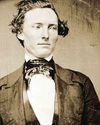
FIREARMS COLT WALKER 47
THE LEGENDARY HANDGUN THAT REALLY WON THE WEST
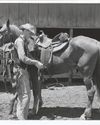
HERITAGE TRAVE
THE AMERICAN WEST IN ALL ITS GLORY OUR ANNUAL FAVORITES LIST CELEBRATES DESTINATIONS ACROSS THE WESTERN UNITED STATES.
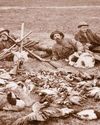
Wild Turkey, and Not the Drinkin' Kind
The actual bird was a favorite of pioneers.

THE PASSION PROJECTS OF THE MODERN WESTERN
A YEAR OF UNDERRATED EXCELLENCE
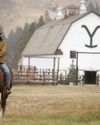
WESTERN BOOKS THEN AND NOW
THE STATE OF WESTERN HISTORY AND FICTION PUBLISHING IN 2024 IS ONE OF GRIT AND DETERMINATION.
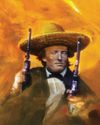
SAMUEL WALKER VALIANT WARRIOR
While a prisoner at the castle of Perote, Walker was put to work raising a flagpole. At the bottom of the hole, Walker placed a Yankee dime, vowing to someday come back and retrieve it, at the same time exacting revenge on his Mexican captors. In the summer of 1847, when Walker's mounted riflemen returned and routed Santa Anna's guerillas, the young captain kept his promise and got his dime back.
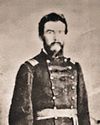
THE BATTLE OF CENTRALIA
ON September 27, 1864, Bloody Bill Anderson and about 80 men took over the small railroad village of Centralia, looting stores and discovering a barrel of whiskey that they hauled out into the street. Wild enough when sober, they soon were roaring drunk.
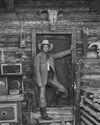
THE MAN WHO SHOOTS THE WEST
Jay Dusard is a living American photographer who has made Arizona his home for over 60 years, seeing it first in 1960 on a visit, moving here for good in 1963.
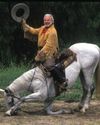
A TRUE WESTERNER INDEED PHIL SPANGENBERGER 1940-2024
Spangenberger had Nevada trained to bow by the legendary horse trainer, Glenn Randall, who trained Roy Rogers' Trigger, Gene Autry's Champion, Rex Allen's Koko and the Ben Hur chariot horses, among other great equines.

Where Did the Loot Go? - This is one of those find the money stories. And it's one that has attracted treasure hunters for more than 150 years.
Whatever happened to the $97,000 from the Reno Gang's last heist? Up to a dozen members of the Reno Gang stopped a Jeffersonville, Madison and Indianapolis train at a watering station in southern Indiana. The outlaws had prior intelligence about its main load: express car safes held about $97,000 in government bonds and notes. In the process of the job, one of the crew was killed and two others hurt. The gang made a clean getaway with the loot.